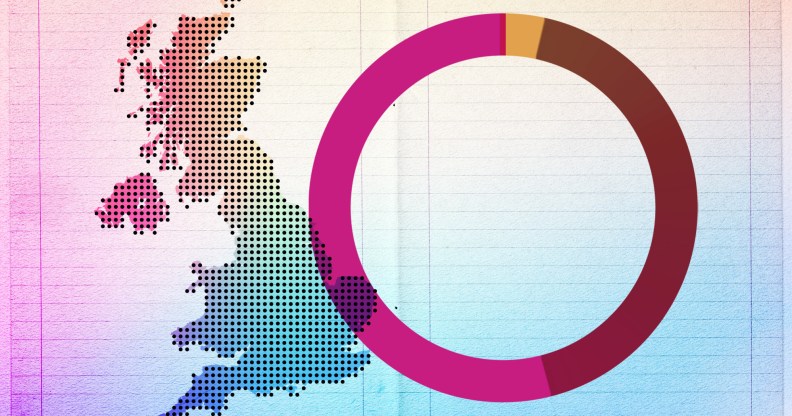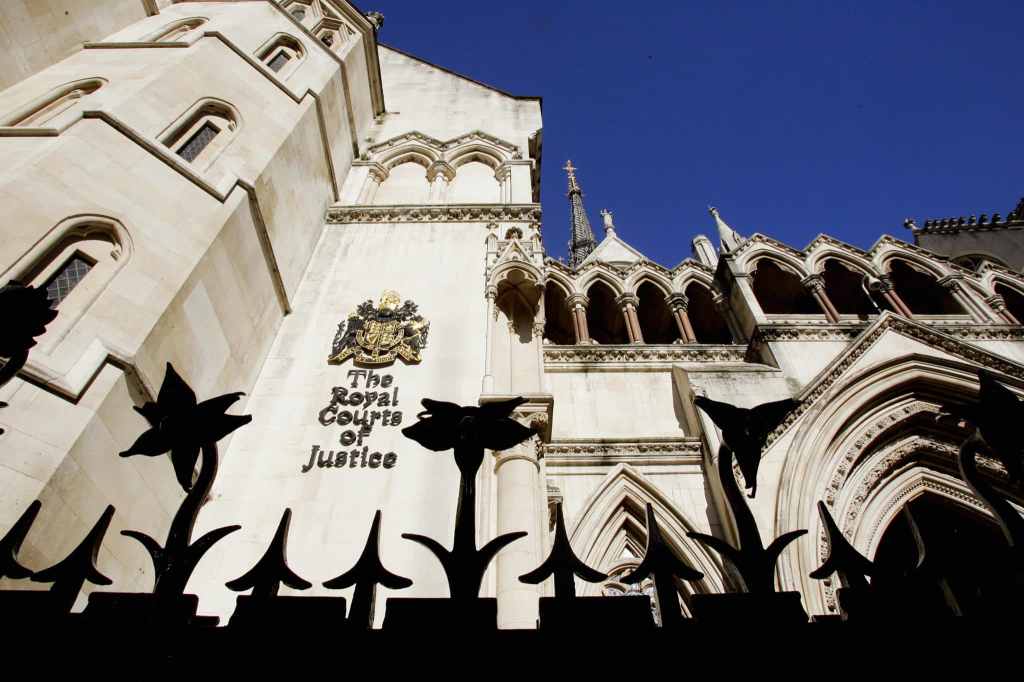Size of England and Wales’ LGBTQ+ population confirmed for first time by new census data

Gen Z are most likely to be LGB+ according to new ONS data. (Getty)
Groundbreaking census data for England and Wales has been released, revealing more than 260,000 people in the UK identify as trans.
Around 1.5 million people (3.2 per cent) responded that they identified with an LGB+ orientation, while 43.4 million people (89.4 per cent) identified as straight or heterosexual.
The question asked was “which of the following best describes your sexual orientation?”, with the choices of straight or heterosexual, gay or lesbian, bisexual or other sexual orientation being available to select.
A total of 748,000 of the 1.5 million people described themselves as gay or lesbian, 624,000 described themselves as bisexual, and 165,000 selected “other sexual orientation”.
The once-a-decade report by Office for National Statistics (ONS) was released on Friday (6 January) and for the first time include statistics on the public’s sexual orientation and gender identity.
It found, of the 45.7 million people who responded, 262,000 answered “no” to the voluntary question: “Is the gender you identify with the same as your sex registered at birth?”.
A total of 118,000 of the people who answered didn’t expand on what they identify as.
Of the total number 48,000 identified as a trans man – and the same number identifying as a trans woman. Within this data capture 30,000 identified as non-binary and 18,000 wrote in a different gender identity, according to the census.
Gender identity refers to a person’s sense of their own gender and the question, which was new for census 2021, allowed the ONS to capture the size of the trans population in England and Wales.
The data aims to enable better information for monitoring purposes, support anti-discrimination and aid resources and policy developments.
London has highest proportion of LGBTQ+ people
London was captured as the region with the highest proportion of LGBTQ people.
Of the 262,000 people who answered the gender identity question with “no”, 0.91 per cent of them lived in London. The South West had the lowest percentage of people living there who reported that their gender identity was different from their sex at birth at 0.42 per cent.
The report also found England had a slightly higher percentage of respondents who answered “no” to the gender question, with 0.55 per cent, while Wales had 0.40 per cent.
The statics were captured by asking people aged 16 and above voluntary questions.
Capturing data on people’s sexual orientation aims to meet better standards for the queer community and improve discrimination.
Office for National Statistics (ONS) director Jen Woolford said: “Having these first census estimates about the population [of England and Wales] in relation to gender identity, as well as sexual orientation at a local level, is crucial.”
“They will ensure decision-makers have the best information so they can better understand the extent and nature of disadvantage which people may be experiencing in terms of educational outcomes, health, employment, and housing.”
Population polls conducted by the ONS in 2018 released in 2020 found that around one in 50 Britons identify as LGB.

It follows the High Court ordering the ONS to amend 2021 census guidance on the question “what is your sex?”.
The challenge was mounted after the anti-trans pressure group Fair Play for Women — a group set up to campaign against Gender Recognition Act reform — began crowdfunding to raise money for a legal challenge against the ONS. The group raised more than £100,000.
A mandatory question on sex in the census report requires an answer of “male” or “female”.
Guidance accompanying the sex question was to read: “If you are considering how to answer, use the sex recorded on one of your legal documents such as a birth certificate, gender recognition certificate, or passport.”
Fair Play for Women argued in court that ONS was “redefining sex” with the word “passports”. A High Court judge sided with the group, ordering the ONS to remove “such as” and “passport” from its guidance.
How did this story make you feel?

